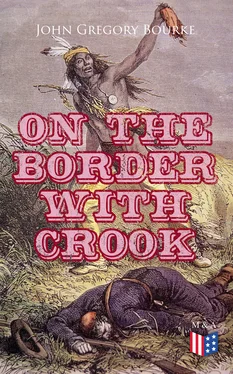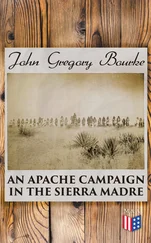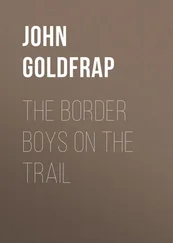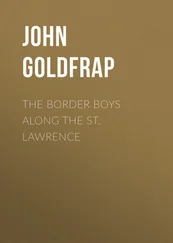“Why, every year, of course.”
“Oh, but you see mine is five per cent. a week.”
Speedy was the only man I ever knew who had really seen a ghost. As he described it to us, it had much the appearance of a “human,” and was mounted on a pretty good specimen of a Sonora plug, and was arrayed in a suit of white canvas, with white helmet, green veil, blue goggles, and red side whiskers. It didn’t say a word to my friend, but gave him a decidedly cold stare, which was all that Speedy cared to wait for before he broke for the brush. A hundred yards or so in rear there was a train of pack mules, laden with cot frames, bath-tubs, hat boxes, and other trumpery, which may or may not have had something to do with the ghost in advance. Speedy and his mule were too agitated to stop to ask questions, and continued on into Hermosillo.
Information received about this time from Sonora reported that an English “lud” was “roughing it” in and about the Yaqui country, and it is just possible that he could have given much information about the apparition had it been demanded; but Speedy persisted in his belief that he had had a “call” from the other world, and was sorely depressed for several weeks.
Speedy rendered valuable help in our self-imposed task of digging in the “ruins” alongside of our quarters—vestiges of an occupancy by a pre-historic race, allied to the Pueblos of the Rio Grande or to the Pimas and Papagoes.
Broken pottery, painted and unpainted, a flint knife or two, some arrow-heads, three or four stone hatchets, and more of the same sort, were our sole reward for much hard work. The great question which wrought us up to fever heat was, Who were these inhabitants? Felmer promptly decided that they were Phoenicians—upon what grounds I do not know, and it is very doubtful if Felmer knew either—but Oscar Hutton “’lowed they mout ’a’ bin some o’ them Egyptian niggers as built the pyramids in th’ Bible.”
The paymaster had come and gone; the soldiers had spent their last dollar; the last “pay-day drunk” had been rounded up and was now on his way to the guard-house, muttering a maudlin defiance to Erin’s foes; the sun was shining with scorching heat down upon the bed of pebbles which formed the parade-ground; the flag hung limp and listless from the pudgy staff; the horses were out on herd; the scarlet-shouldered blackbirds, the cardinals, the sinsontes, and the jays had sought the deepest shadows; there was no sound to drown the insistent buzz of the aggravating flies or the voice of the Recorder of the Garrison Court just assembled, which was trying Privates A. and B. and C. and D. and others, names and rank now forgotten, for having “then and there,” “on or about,” and “at or near” the post of Camp Grant, Arizona, committed sundry and divers crimes against the law and regulations—when, straight across the parade, with the swiftness of a frightened deer, there ran a half or three-quarters naked Mexican, straight to the door of the “comandante’s” quarters.
He was almost barefooted, the shoes he had on being in splinters. His trousers had been scratched so by the thorns and briars that only rags were now pendent from his waist. His hat had been dropped in his terrified flight from some unexplained danger, which the wan face, almost concealed by matted locks, and the shirt covered with blood still flowing freely from a wound in the chest, conclusively showed to have been an Apache ambuscade.
With faltering voice and in broken accents the sufferer explained that he was one of a party of more than thirty Mexicans coming up from Tucson to work on the ranch of Kennedy and Israel, who lived about a mile from our post down the San Pedro. There were a number of women and several children with the train, and not a soul had the slightest suspicion of danger, when suddenly, on the head of the slope leading up to the long “mesa” just this side of the Cañon del Oro, they had found themselves surrounded on three sides by a party of Apaches, whose strength was variously put at from thirty to fifty warriors.
The Americans and Mexicans made the best fight possible, and succeeded in keeping back the savages until the women and children had reached a place of comparative safety; but both Kennedy and Israel were killed, and a number of others killed or wounded, our informant being one of the latter, with a severe cut in the left breast, where a bullet had ploughed round his ribs without doing very serious damage. The Apaches fell to plundering the wagons, which were loaded with the general supplies that ranchmen were in those days compelled to keep in stock, for feeding the numbers of employees whom they had to retain to cultivate their fields, as well as to guard them, and the Mexicans, seeing this, made off as fast as their legs could carry them, under the guidance of such of their party as were familiar with the trails leading across the Santa Catalina range to the San Pedro and Camp Grant. One of these trails ran by way of Apache Springs at the northern extremity of the range, and was easy of travel, so that most of the people were safe, but we were strongly urged to lose no time in getting round by the longer road, along which the Apaches were believed to have pursued a few men.
The Mexican, Domingo, had seen Sergeants Warfield and Mott, two old veterans, on his way through the post, and they, without waiting for orders, had the herd run in and saddles got out in anticipation of what their experience taught them was sure to come. Every man who could be put on horseback was mounted at once, without regard to his company or regiment, and in less than twenty minutes the first detachment was crossing the San Pedro and entering the long defile known as the Santa Catalina Cañon—not very well equipped for a prolonged campaign, perhaps, as some of the men had no water in canteens and others had only a handful of crackers for rations, but that made no difference. Our business was to rescue women and children surrounded by savages, and to do it with the least delay possible. At least, that was the way Colonel Dubois reasoned on the subject, and we had only our duty to do—obey orders.
A second detachment would follow after us, with a wagon containing water in kegs, rations for ten days, medical supplies, blankets, and every other essential for making such a scout as might become necessary.
Forward! was the word, and every heel struck flank and every horse pressed upon the bit. Do our best, we couldn’t make very rapid progress through the cañon, which for its total length of twelve miles was heavy with shifting sand.
Wherever there was a stretch of hard pan, no matter how short, we got the best time out of it that was possible. The distance seemed interminable, but we pressed on, passing the Four-mile Walnut, on past the Cottonwood, slipping along without a word under the lofty walls which screened us from the rays of the sun, although the afternoon was still young. But in much less time than we had a right to expect we had reached the end of the bad road, and halted for a minute to have all loose cinches retightened and everything made ready for rapid travelling on to the Cañon del Oro.
In front of us stretched a broken, hilly country, bounded on the east and west by the Tortolita and the Sierra Santa Catalina respectively. The summer was upon us, but the glories of the springtime had not yet faded from the face of the desert, which still displayed the splendors of millions of golden crocuses, with countless odorless verbenas of varied tints, and acres upon acres of nutritious grasses, at which our horses nibbled every time we halted for a moment. The cañon of the Santa Catalina for more than four miles of its length is no wider than an ordinary street in a city, and is enclosed by walls rising one thousand feet above the trail. Wherever a foothold could be found, there the thorny-branched giant cactus stood sentinel, or the prickly plates of the nopal matted the face of the escarpment. High up on the wall of the cañon, one of the most prominent of the pitahayas or giant cacti had been transfixed by the true aim of an Apache arrow, buried up to the feathers.
Читать дальше












